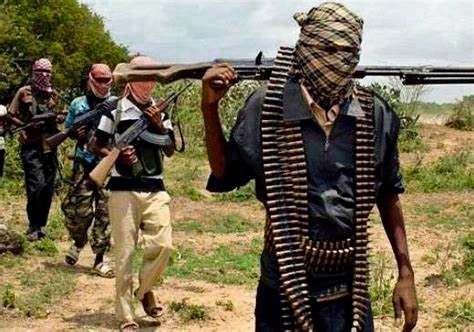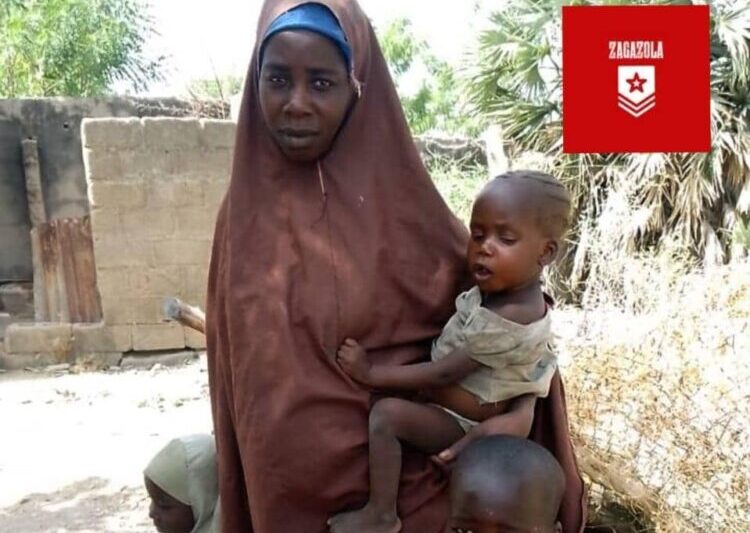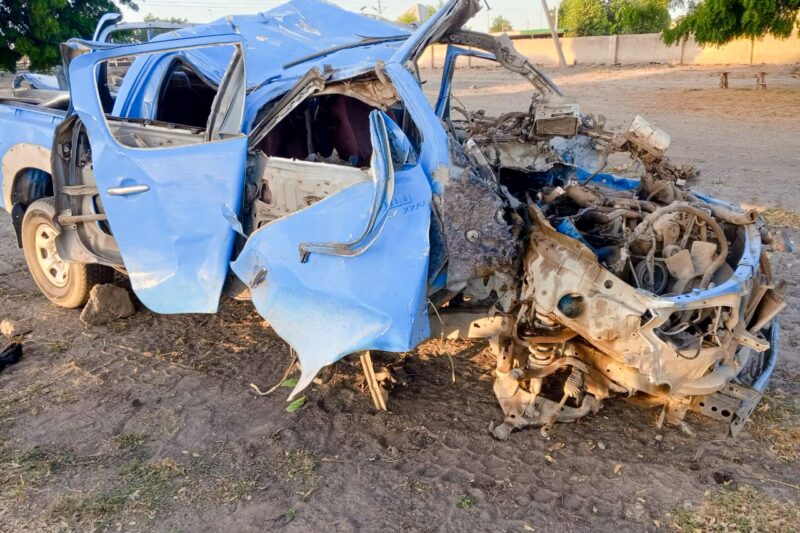Every day – for three months now – at least 100 villagers from Krikasamma in the Damboa Local Government Area in Borno State have to trek 6km – 3km there and 3km back – to get water to survive.
The trip is arduous, especially on the way back because the buckets and containers are heavy.
Before they had to undergo this back-breaking journey, residents relied on a solar-powered borehole – but it broke three months ago, making water a scarce commodity, especially now in the dry season.
Residents said that if they did not undertake the trek every day they would not be able to survive.
Adam Yusuf, a resident, told RNI reporter Alkali Mustapha that the lack for water seriously affected their daily living.
“Without a functioning borehole we do not have water to drink, we cannot do our daily ablutions and we cannot perform house chores or other activities,” he said. “That is why we need to walk to Damboa to fetch it. And, often, there is not enough for all of us.”
The International Fund for Agricultural Development (IFAD), in collaboration with the Borno State government, installed the borehole more than a year ago. When it broke three months ago, IFAD forwarded the issue to the relevant government authorities but nothing had been done to fix it.
Yusuf said he was worried about the quality of the water they got from Damboa.
“When we carry the buckets back home, it is windy and sand gets into the water. We usually try to put it through a sieve before we use it. But sometimes we are so thirsty, we drink it as it is. I worry that the wind and sand could contaminate the water.”
Yachilla Amadu, a mother, said: “In the village we have no water to drink and bath. We have to do the daily trudge to Damboa to get water and even then we don’t always get enough because there are many others who are doing the same thing. Sometimes there are so many that we get home only at about 7pm. Then we cook, using some of the water, but often we do not have enough to take a bath.”
She said not having a working borehole was “a struggle”.
“It is the dry season now and we have not had any rain for about five months. We are used to it and it would not be so difficult if the borehole was working. So, until the government gets it fixed, we will have to go on like this. It is terribly heavy carrying the water back home. And we are always concerned because our children might get sick if the water gets contaminated,” Amadu said.
When investigated, RNI discovered that the authorities were aware of the borehole problem and water scarcity in the village but they had not done anything to help the residents yet.
The dry season – which is longer in the north of the country – starts from late October and lasts until early March, with peak dry conditions between early December and late February.
- IFAD is an international financial institution and specialised United Nations agency.It invests in rural people, empowering them to increase their food security, improve the nutrition of their families and increase their incomes. It helps them to build resilience, expand their businesses and take charge of their own development.








